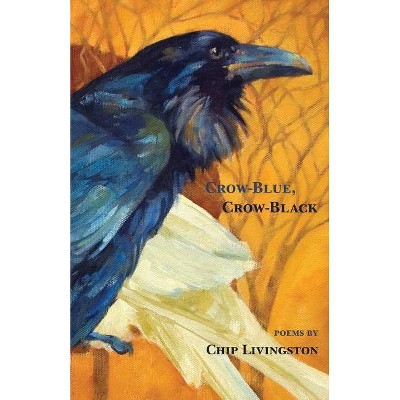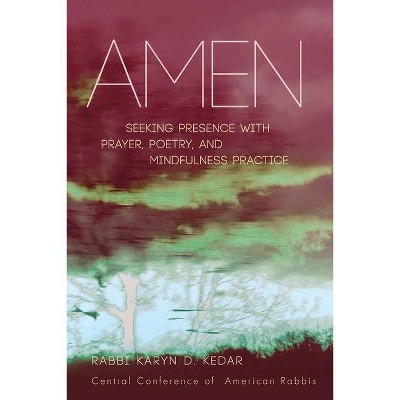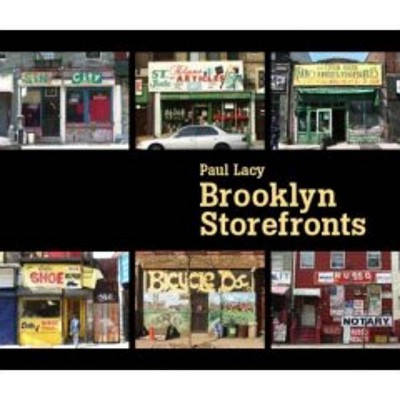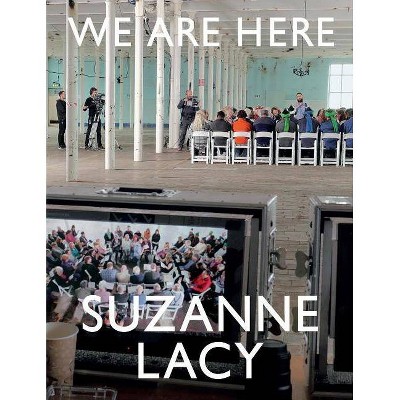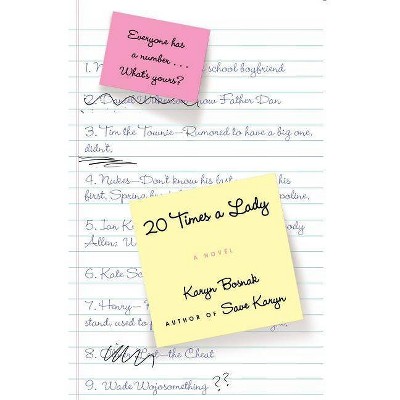Blue-Chip Black - by Karyn Lacy (Paperback)
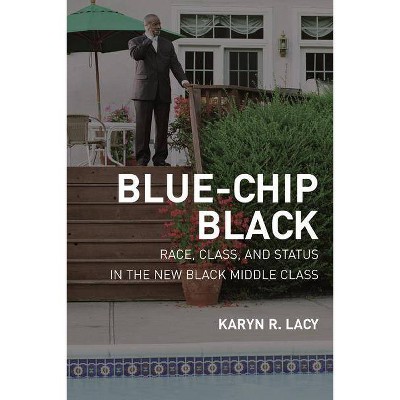
Similar Products
Products of same category from the store
AllProduct info
<p/><br></br><p><b> About the Book </b></p></br></br>""Blue-Chip Black" expertly captures the diversity among African Americans, and particularly among African Americans in the middle class. Lacy's exploration of how black families negotiate the murky and sometimes combustible terrains of race, class, and place illuminates the hard work that goes into forming and claiming a particular identity."--Mary Pattillo-McCoy, author of "Black Picket Fences: Privilege and Peril in a Black Middle Class Neighborhood" <BR>""Blue-Chip Black" is an important and original book. It represents a terrific contribution to our understanding of the black middle class, and of its relationship to the white middle class and to blacks of other classes. Lacy offers analytical tools needed to capture the impact of neighborhoods and broader contexts on basic social processes, such as boundary work. "Blue-Chip Black" should become a "must read" for all students of inequality, culture, and race."--Michele Lamont, author of "The Dignity of Working Men: Morality and the Boundaries of Race, Class, and Immigration" <BR>""Blue-Chip Black" is an ambitious ethnographic intervention into the class analysis of the black population. By focusing on blacks in suburbs, and taking the time to get to know the residents of four different kinds of middle class communities, Karyn Lacy skillfully illuminates the surprising variation in the way her subjects view themselves, one another, and the whites with whom they interact. This is the most systematic examination to date of the everyday life of suburban middle class blacks."--Mitchell Duneier, Department of Sociology, Princeton University <BR>"Lacy has given critical race scholars a theoretically groundbreaking comparative analysis of black middle class life in suburban communities. This multi-sited ethnography innovates and renovates analyses of racial and ethnic belonging among middle class blacks. Lacy provides a rigorous comparative analysis of how demographics and post-civil rights racism activate the cultural logics and strategies employed by members of the black middle class to negotiate their racial identities and ethnic boundaries, and assert class-based identities as they move between segregated and racially stratified social worlds. This book should be required reading for courses on social inequality, contemporary US society, racial and ethnic studies and Black studies."--France Winddance Twine, Visiting Professor of Sociology at The London School of Economics & Political Science, and Professor of Sociology at University of California at Santa Barbara<p/><br></br><p><b> Book Synopsis </b></p></br></br>As Karyn R. Lacy's innovative work in the suburbs of Washington, DC, reveals, there is a continuum of middle-classness among blacks, ranging from lower-middle class to middle-middle class to upper-middle class. Focusing on the latter two, Lacy explores an increasingly important social and demographic group: middle-class blacks who live in middle-class suburbs where poor blacks are not present. These "blue-chip black" suburbanites earn well over fifty thousand dollars annually and work in predominantly white professional environments. Lacy examines the complicated sense of identity that individuals in these groups craft to manage their interactions with lower-class blacks, middle-class whites, and other middle-class blacks as they seek to reap the benefits of their middle-class status.<p/><br></br><p><b> From the Back Cover </b></p></br></br>"<i>Blue-Chip Black</i> expertly captures the diversity among African Americans, and particularly among African Americans in the middle class. Lacy's exploration of how black families negotiate the murky and sometimes combustible terrains of race, class, and place illuminates the hard work that goes into forming and claiming a particular identity."--Mary Pattillo, author of <i>Black Picket Fences: Privilege and Peril in a Black Middle Class Neighborhood</i> <p/> "<i>Blue-Chip Black</i> is an important and original book. It represents a terrific contribution to our understanding of the black middle class, and of its relationship to the white middle class and to blacks of other classes. Lacy offers analytical tools needed to capture the impact of neighborhoods and broader contexts on basic social processes, such as boundary work. <i>Blue-Chip Black</i> should become a "must read" for all students of inequality, culture, and race."--Michèle Lamont, author of <i>The Dignity of Working Men: Morality and the Boundaries of Race, Class, and Immigration</i> <p/> "<i>Blue-Chip Black</i> is an ambitious ethnographic intervention into the class analysis of the black population. By focusing on blacks in suburbs, and taking the time to get to know the residents of four different kinds of middle class communities, Karyn Lacy skillfully illuminates the surprising variation in the way her subjects view themselves, one another, and the whites with whom they interact. This is the most systematic examination to date of the everyday life of suburban middle class blacks."--Mitchell Duneier, Department of Sociology, Princeton University <p/> "Lacy has given critical race scholars a theoretically groundbreaking comparative analysis of black middle class life in suburban communities. This multi-sited ethnography innovates and renovates analyses of racial and ethnic belonging among middle class blacks. Lacy provides a rigorous comparative analysis of how demographics and post-civil rights racism activate the cultural logics and strategies employed by members of the black middle class to negotiate their racial identities and ethnic boundaries, and assert class-based identities as they move between segregated and racially stratified social worlds. This book should be required reading for courses on social inequality, contemporary US society, racial and ethnic studies and Black studies."--France Winddance Twine, Visiting Professor of Sociology at The London School of Economics & Political Science, and Professor of Sociology at University of California at Santa Barbara<p/><br></br><p><b> Review Quotes </b></p></br></br><br>"An important contribution to research on the black middle-class. . . . Rigorous analysis of black middle-class suburban identity."-- "Journal Of Sociology" (12/1/2007 12:00:00 AM)<br><br>"Offers a tremendously important contribution to scholarship on contemporary Black life and social class issues in America."-- "Journal Of Marriage & Family" (4/1/2009 12:00:00 AM)<br><p/><br></br><p><b> About the Author </b></p></br></br><b>Karyn Lacy</b> is Assistant Professor of Sociology and the Center for Afro-American and African Studies at the University of Michigan, a Ford Fellow, and was a Visiting Scholar at the Russell Sage Foundation.
Price History
Cheapest price in the interval: 34.99 on October 22, 2021
Most expensive price in the interval: 34.99 on December 20, 2021
Price Archive shows prices from various stores, lets you see history and find the cheapest. There is no actual sale on the website. For all support, inquiry and suggestion messages communication@pricearchive.us
